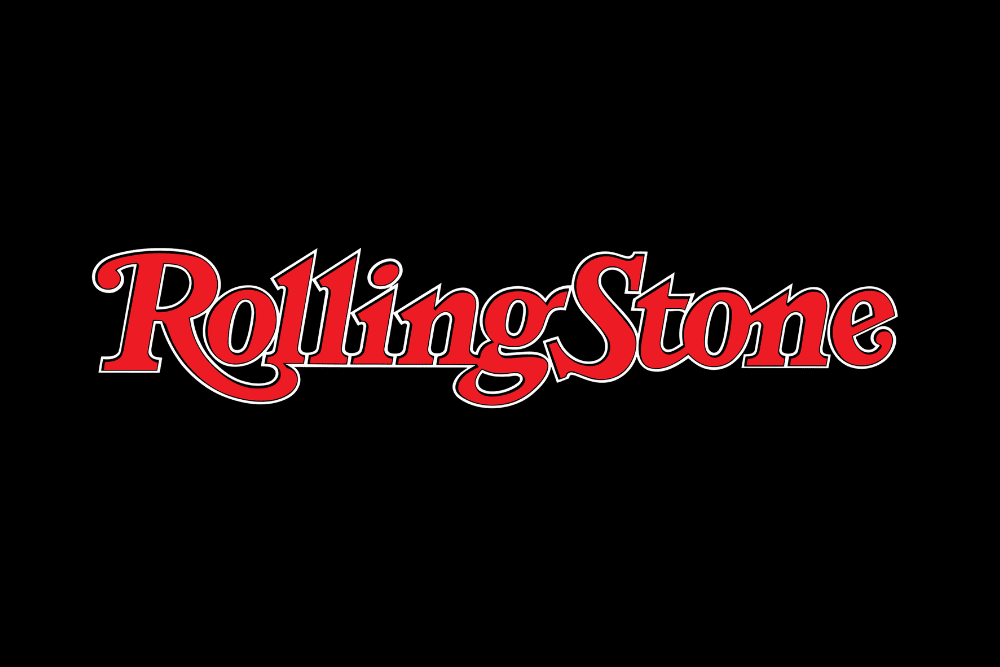The Alarming Connection Between Detox Center Deaths and Insufficient Training
The shocking statistic that 68% of deaths in Los Angeles detox facilities stem from inadequate staff training points to a systemic failure in patient care. When you entrust a loved one to a detox center, you expect professional, attentive care during their vulnerable recovery journey. Instead, families across California are facing unimaginable tragedy when treatment centers fail to maintain proper standards. The combination of undertrained staff, insufficient medical oversight, and lax facility protocols creates a perfect storm for negligence that can lead to fatal consequences. If your family has experienced such a tragedy, understanding your rights is the first step toward accountability.
When tragedy strikes due to inadequate care at a detox center, knowing your rights and seeking justice is crucial. At MSD Lawyers, we are committed to helping families navigate the legal complexities and hold facilities accountable. Call us today at 213-401-0823 or contact us for a confidential consultation.

Understanding Your Legal Rights After a Detox Center Death in California
California law provides specific protections for patients in healthcare settings, including addiction treatment facilities. Under California's healthcare liability laws, detox centers must maintain specific standards of care, including proper staffing ratios, adequate medical supervision, and appropriate emergency response protocols. When these standards aren't met, facilities can be held accountable through medical negligence lawsuits. California law recognizes wrongful death claims when negligence leads to fatal outcomes, allowing families to seek compensation for medical expenses, funeral costs, lost financial support, and the profound emotional impact of their loss. The state's Health and Safety Code also mandates specific licensing requirements and operational standards for detox facilities, creating a clear framework for establishing negligence when these requirements aren't met.
Critical Timeline for Pursuing Justice After a Detox Facility Death
Understanding the timeline for pursuing a detox center negligence case is crucial for preserving your legal rights. California's statute of limitations creates specific deadlines that must be met to maintain your ability to seek justice. Acting promptly allows for proper evidence preservation and more effective investigation into what went wrong at the facility.
In California, wrongful death claims generally must be filed within two years of the date of death, though this timeline can be shorter if a government-operated facility is involved.
Medical records must be secured immediately as facilities may only retain certain documentation for limited periods—a 2023 state audit revealed that 43% of California detox centers had significant record-keeping deficiencies that could compromise future legal actions.
Expert medical witness testimony must be secured within specific timeframes to establish the standard of care that was violated.
California requires a 90-day notice period before filing suit against certain healthcare providers, making early legal consultation essential to avoid missing critical deadlines.
Seeking Accountability and Closure Through Legal Action
When facing the aftermath of a detox center death, pursuing legal action serves multiple purposes beyond compensation. It creates accountability that can drive systemic change, potentially preventing future tragedies for other families. The legal process can also provide answers about what went wrong—information that facilities are often reluctant to share voluntarily. At MSD Lawyers, we've helped families uncover critical failures in staff training protocols, inadequate medical supervision, and improper medication management that contributed to preventable deaths. Our approach focuses on thorough investigation of facility practices, staff qualifications, and compliance with California healthcare regulations. While no legal outcome can truly compensate for your loss, establishing accountability creates a pathway toward closure and honors your loved one's memory through meaningful change.
Common Negligence Patterns in Los Angeles Detox Facilities
Understanding the specific patterns of negligence that contribute to detox center deaths can help families recognize warning signs and identify potential liability. Our investigations into California healthcare liability cases have revealed several recurring issues that disproportionately impact patient safety in addiction treatment settings. These patterns often reveal systemic problems that extend beyond individual staff members to facility-wide policies and practices.
Inadequate Medical Supervision During Critical Withdrawal Periods
The most dangerous period for many patients in detox is during active withdrawal when medical complications can rapidly escalate. California regulations require appropriate medical oversight during this critical phase, but many facilities cut corners by having minimal qualified staff present. We've observed that many detox centers operate with bare minimum staffing levels during overnight hours when withdrawal symptoms often peak. Medical staff qualifications are another crucial factor—some facilities employ staff with minimal addiction medicine training, leaving them unprepared to recognize early warning signs of serious complications like seizures, respiratory depression, or cardiac events.
The Regulatory Gaps Contributing to Patient Safety Failures
California's regulatory framework for detox facilities contains significant gaps contributing to patient safety risks. A 2023 California State Auditor report found that 71% of investigated detox centers had operational deficiencies that directly impacted patient care quality. Despite these findings, regulatory enforcement remains inconsistent, with facilities often continuing operations despite documented violations. This regulatory landscape challenges families seeking accountability, as facilities may technically comply with minimum requirements while still delivering substandard care.
Licensing and Certification Issues in California Treatment Centers
California's tiered licensing system for addiction treatment facilities creates a complex landscape where quality standards vary dramatically. Higher-level medical detox facilities face stricter requirements but represent only a fraction of available treatment options. Non-medical detox programs operate under less stringent oversight despite serving vulnerable patients. This licensing disparity confuses families who may not understand the differences in care standards and medical capabilities between facility types. When evaluating potential legal claims, determining whether a facility misrepresented its capabilities or operated beyond its licensing scope becomes a critical investigation focus.
Identifying Specific Failures in Staff Training and Protocols
The connection between inadequate staff training and detox center deaths manifests in specific operational failures that create liability under California healthcare laws. Understanding these specific breakdowns helps establish the causal link between negligence and patient harm—a critical element in malpractice lawsuits. Staff training deficiencies often appear in several key areas that directly impact patient safety.
Emergency Response Protocols and Fatal Delays
One of the most devastating training failures involves inadequate emergency response protocols. In detox settings, medical emergencies require immediate recognition and intervention, yet many facilities lack clear procedures or properly trained staff to implement them. California patient safety claims often center on delayed recognition of life-threatening symptoms, improper emergency interventions, or critical delays in contacting emergency medical services. These failures are particularly common during overnight shifts when staffing is minimal. Proper documentation of vital signs, especially during medication administration and the acute withdrawal phase, represents another critical area where training deficiencies directly contribute to preventable deaths.
Frequently Asked Questions
1. What qualifies as detox center negligence in Los Angeles?
Detox center negligence in Los Angeles occurs when a facility fails to provide the standard of care required by California healthcare laws. This includes inadequate medical supervision, improper medication management, insufficient staff training, failure to monitor vital signs, delayed emergency response, or improper assessment of a patient's medical needs. For negligence to be legally actionable, the failure must have directly contributed to patient harm or death.
2. How can a Los Angeles healthcare lawyer help after a detox center death?
A detox center death lawyer in Los Angeles can investigate the circumstances surrounding the death, secure critical medical records before they're altered or destroyed, identify violations of California healthcare regulations, consult with medical experts to establish the standard of care that was breached, determine all potentially liable parties (including corporate owners and medical directors), and manage the complex filing requirements for California medical negligence lawsuits. They can also navigate insurance negotiations while preparing for potential trial proceedings.
3. What compensation is available through a California medical negligence lawsuit for detox facility deaths?
California law allows families to seek several types of damages through medical negligence and wrongful death claims. These include economic damages like medical expenses before death, funeral and burial costs, and loss of financial support the deceased would have provided. Non-economic damages cover the loss of companionship, guidance, and emotional support. California caps non-economic damages in medical negligence cases at $350,000 for wrongful death claims (increasing gradually to $750,000 by 2033), though economic damages remain uncapped.
4. How long do I have to file a facility malpractice claim in CA after a detox center death?
In California, wrongful death claims related to healthcare facility negligence generally must be filed within two years from the date of death. However, this timeline can be shorter if a government entity operates the facility (requiring a government claim within six months). If the negligence wasn't immediately discoverable, limited extensions might apply under the "discovery rule." Additionally, California requires a 90-day notice of intent to sue before filing certain healthcare liability claims, making early legal consultation essential to preserve your rights.
5. What evidence is needed to prove Los Angeles medical oversight failures in detox centers?
Building a strong case requires multiple types of evidence, including complete medical records from the facility and any subsequent emergency care, staff credentials and training documentation, facility policies and protocols, not having adequate staffing schedules showing coverage levels, medication administration records, communication logs between staff members, prior complaints or regulatory violations, and expert testimony establishing the standard of care and how it was breached. Physical evidence such as photographs, facility conditions documentation, and witness statements from other patients or staff members can also strengthen your case substantially.
Work with a Detox Clinic Deaths Lawyer
The devastating loss of a loved one in a detox facility demands legal guidance. The intersection of addiction treatment regulations, healthcare standards, and wrongful death law creates a complex legal landscape that requires specific knowledge. When selecting legal representation, look for attorneys with direct experience in healthcare facility negligence cases and a demonstrated understanding of addiction treatment standards. MSD Lawyers brings focused experience in detox center negligence cases, with the investigative resources to uncover what went wrong and who should be held accountable. While no legal outcome can truly compensate for your loss, the right representation ensures your family's rights are protected and that your loved one's death leads to meaningful accountability. Contact us for a confidential consultation to understand your options and the potential pathway toward justice.
When faced with the heartache of losing a loved one due to inadequate care at a detox center, it's vital to take action and seek justice. MSD Lawyers is here to guide you through the legal maze and hold those responsible accountable. Don't hesitate to reach out at 213-401-0823 or contact us for a confidential consultation.











